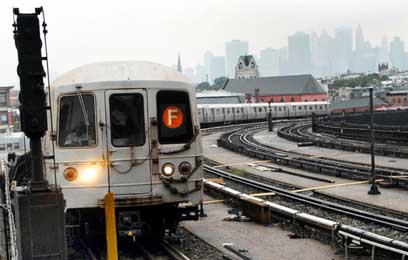Organizations combating the hunger crisis are running out of cash amid unprecedented need, and need help from supporters to stay open, according to the head of the country’s largest Jewish charity.
As the COVID-19 pandemic drags on into the holiday season, demand only grows, according to Met Council’s executive director David Greenfield, who says that as the rate of unemployed New Yorkers stagnates and food pantries shutter due to a lack of federal funding, a higher burden is placed on those that remain open.
“Because of the failure of the federal government to act we’ve actually seen the situation get exacerbated,” said Greenfield, a former Brooklyn councilman who is also the Met Council’s chief executive officer. “This is the most difficult year we’ve seen. I’ve had employees who have been with me for 50 years, and they tell me they have never seen anything like this before.”
With no stimulus from the federal government since the early days of the pandemic and federal food programs running dry, groups fighting food insecurity have had to lean heavily on private donors to keep the lights on — and with no end to the city’s hunger crisis in sight.
“You have to lean on the people in New York City who have resources and who are generous, that’s honestly the only way to do it right now,” said Greenfield.
A recent donation from real estate investor Jane Goldman has enabled Met Council to provide $250,000 of boxed meals through the Thanksgiving season, while smaller organizations have relied on donations from their community to stay afloat.
Brooklyn Relief Kitchen, an all-volunteer effort that started up at the beginning of the pandemic cooking hot meals for various food distributors has come to rely on its GoFundMe page — which has brought in over $50,000 thus far — and on donations from other community groups to purchase food.
“We’re definitely feeling the pinch because there is less food being supplied by local, state, and federal agencies so we’re relying more on donors to actually purchase the food that we’re distributing,” said Andy Wandzilak, a co-founder of the Relief Kitchen.
Farmers to Families, a federal program that used to provide the Relief Kitchen with hundreds of food boxes a week, recently cut back operations in the New York area, and now only delivers their suppliers one weekly shipment instead of two, placing the onus on community organizations to make up the difference.
The closure of long-standing food pantries due to budget shortfalls has also inundated new volunteer-run operations. When a food pantry in Flatbush shuttered, the Relief Kitchen’s distribution spot at St. Marks Church saw its demand double overnight.
To keep feeding those in need, Greenfield said, the fight against hunger needs more help than ever.
“We’d love for you to give to Met Council, we have tremendous reach, but if you have a neighborhood organization and you’d rather give to them, just give,” he said. “For those people who have the ability to give, they have to understand that now their help is needed more than ever before.”






















